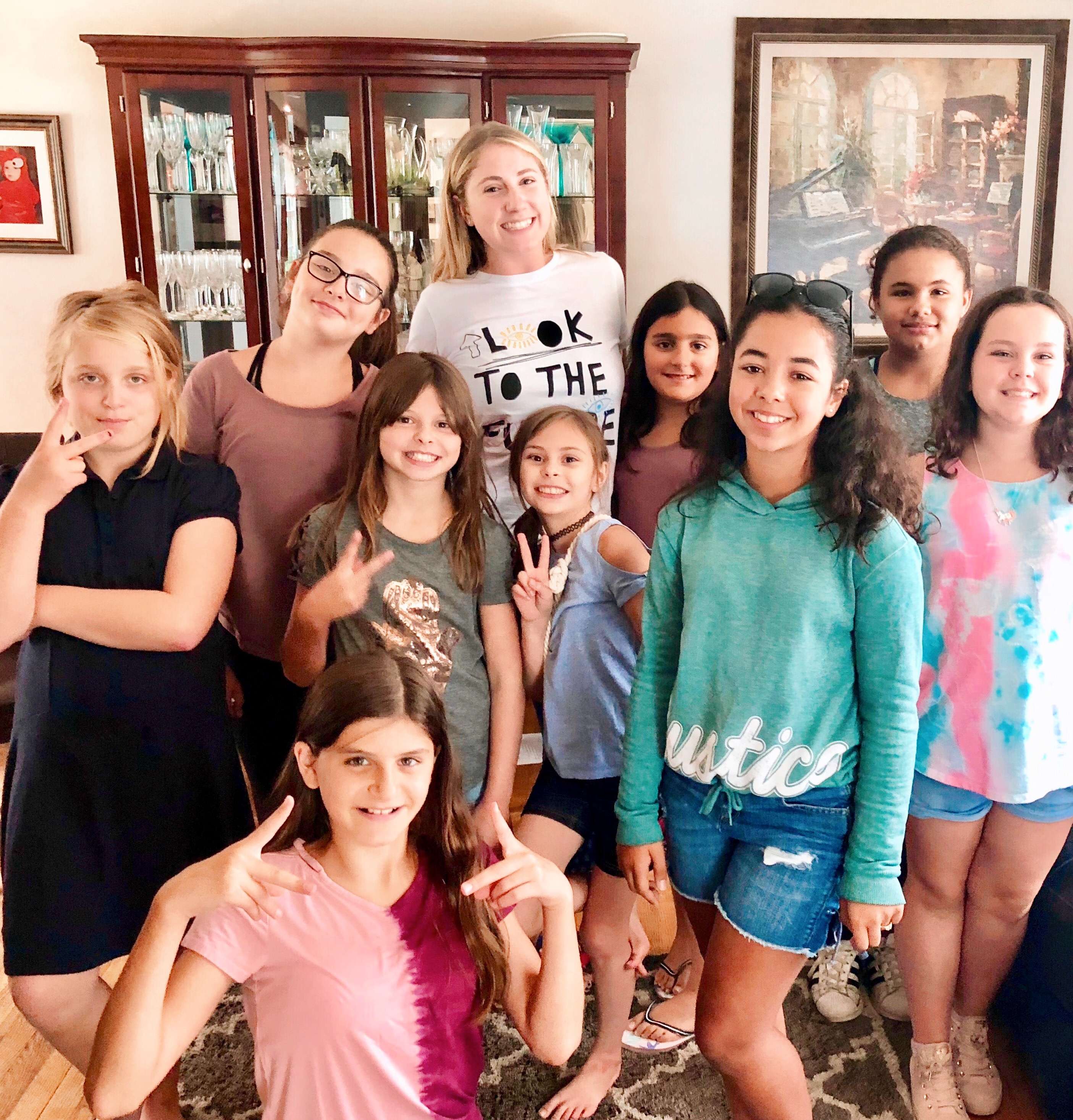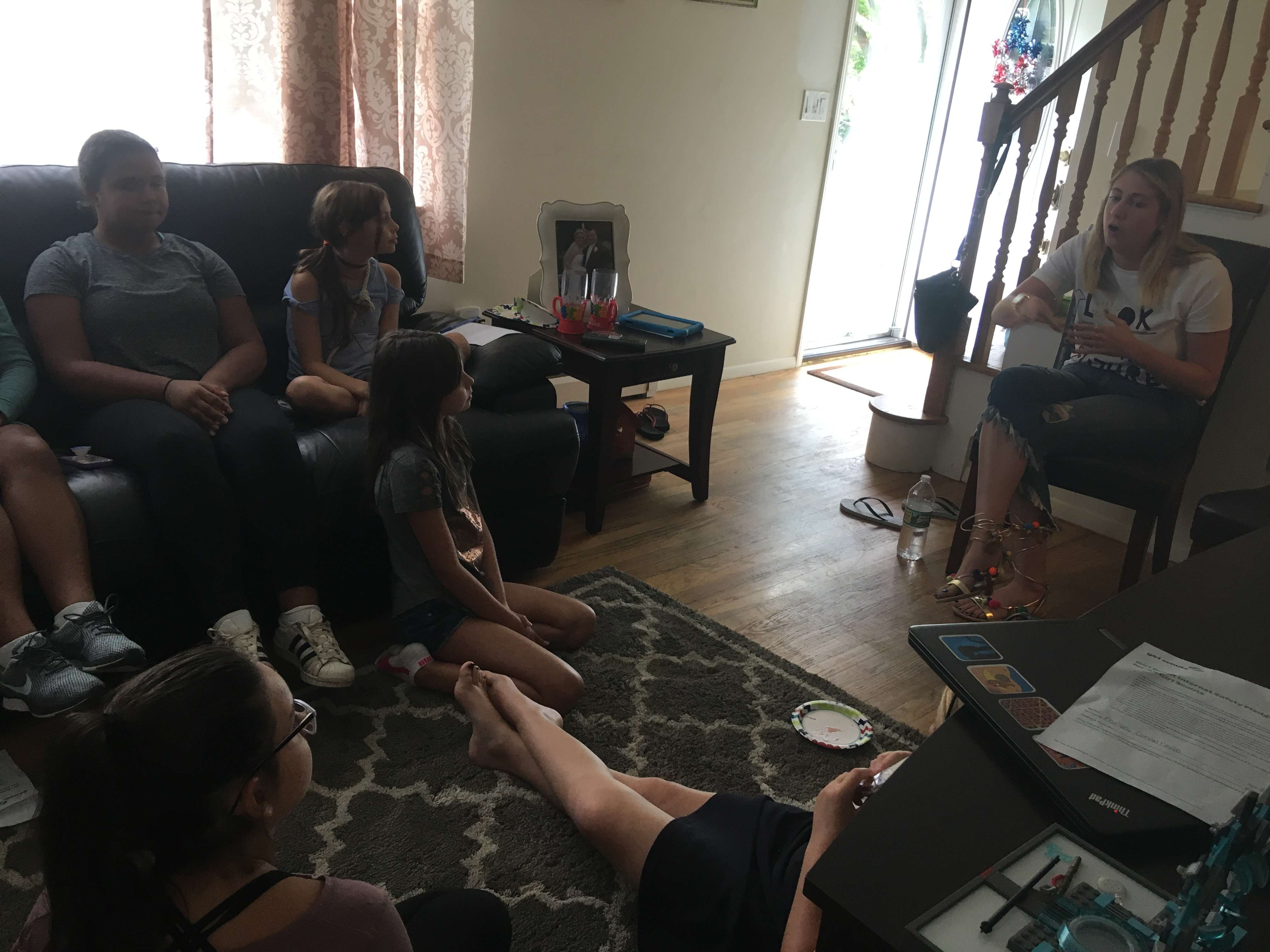
On Saturday I had the chance to speak to Girl Scouts in Danbury, Connecticut. I’m from Storrs, which is about 2 hours towards the opposite side of the state. I was invited by one of the local moms to speak to a group of girls on social media. Most of the girls were in 6th grade (I think!) and had access to technology like cell phones, Kindles and iPads. Whenever I have the opportunity to speak to young girls, I get pretty excited because I always walk away learning so much. During this particular talk, the girls were very vocal and honest about what they were dealing with in school and out of school. The lovely mother who invited me to speak sat next to me and chimed in during the talk, which was incredibly useful because it gave me some insight into how parents should handle difficult subjects with their kids. Here’s the information I walked away with and my advice for parents who should (yes, you should be talking with your kids about social media from a young age. If you don’t know anything about social media, pick up a book and get educated parents) be discussing all of this content with their kids.
1. Group texting should be discussed
Back when I was in middle and high school, I wasn’t talked to about texting. Our school didn’t educate us on Snapchat, sexting or group texting like they should. But it’s not just my school that failed to educate the kids about social media: schools across the globe are failing to discuss necessary topics to help kids maintain healthy minds. After speaking with the girls, I became aware that group texting should be heavily monitored and can be a grey area when tracking your child’s social media. Young kids become overwhelmed and anxious when their friends are group texting (meaning multiple people are texted at once in a group, usually on iPhones) and that leads them to get distracted or angry. How should you handle this? When you’re monitoring their phone (not helicopter parenting, just staying involved) don’t stray away from texts with tons of different names in one thread. Question your child about how group texts make them feel, and make sure they know that they can be removed from a group text.

2. The struggle to keep their family happy
I began to move into questions with them about what stems their anxiety during the school year, and I was alarmed but not surprised to see that the pressure parents put on them is almost outrageous. For one particular girl, she was struggling to balance swimming as an extracurricular, do well in school, other activities, and dance: dance being the once activity her mom was forcing her to participate in. I felt so bad for her, and wished I could have helped her sit down with her mom to explain why she didn’t think dance was benefitting her. It can be easy to get carried away with wanting your child to be the best at everything: but they’re only human, and giving them too many tasks at a young age will lead them to become anxious and possibly depressed when their workload increases. Instead, listen to your child. If they don’t like dancing or swimming, help them find another activity that keeps you pleased and doesn’t have your kid resenting you.

3. Friendships
When I was in 7th grade, I was friends with a group of girls who ended up completely ditching me and kicking me out of their friend group. From 7th-8th grade I felt isolated and alone, constantly wondering what I did wrong to have my best girl friends hate me. Now that I’m older, I know that the girls were jealous of me and I didn’t ever do anything wrong. But when I was 12, I felt like I was going to kill myself because I had been kicked out of my only friend group. When I spoke to the girls, they all agreed that losing friends and feeling like they were drifting away from friends they had in elementary school was really difficult to cope with. Drifting away from friends as you get older or switch schools is inevitable, which is why you can help ease situations like this by introducing new activities or family activities to your kids so they don’t get too caught up in certain friendships. Though the time will eventually pass, friendships at a young age can affect a child in and outside of school, so opening up the conversation with your child will help them know that you are there for them no matter what.

